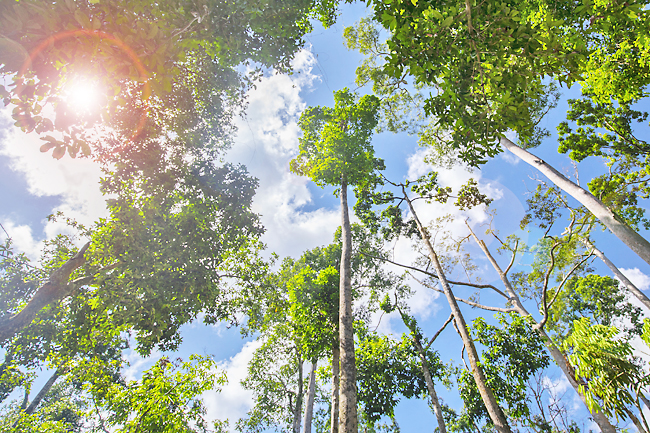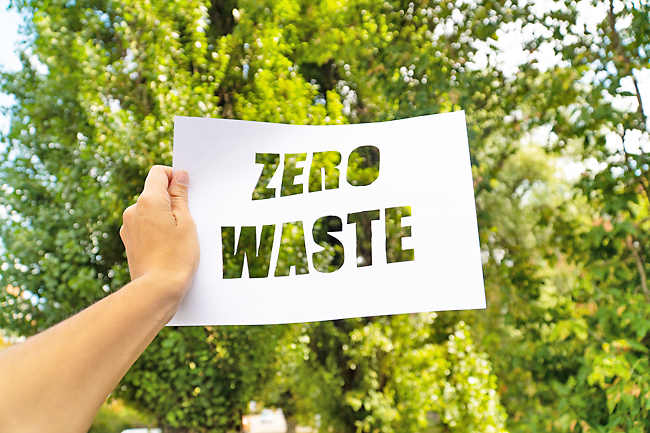The Brunei Climate Change Secretariat (BCCS) believes that more can be achieved with the nation’s involvement in the Brunei National Climate Change Policy (BNCCP) strategies.
Looking back since the implementation of the BNCCP by Brunei National Council Climate Change (BNCCC) on July 25, 2020, the BCCS stressed that collaboration and involvement of all are essential towards a sustainable Brunei Darussalam, ultimately contributing towards achieving the aspirations of Brunei Vision 2035.
“It is undeniable that climate change is real. The global temperature has changed in the last decade, with 2016 to 2020 being the warmest five-year period ever recorded. The rise in temperature is alarming,” the BCCS said.
The BCCS found that the change affects the environment, health, wildlife, food security, biodiversity, ecosystems and livelihood. Brunei Darussalam is no exception to these impacts and if no appropriate actions are taken, it can get more severe and unpredictable.
Brunei along with other countries joined hands to address this global issue. “Brunei strives to reduce greenhouse gas emissions by 50 per cent by 2035, through the BNCCP,” the
BCCS said.

According to the BCCS, the national policy was developed to define the nation’s direction towards a low carbon and climate resilience Brunei, through 10 core strategies – industrial emissions; forest cover; electric vehicles; renewable energy; power management; carbon pricing; waste management; climate resilience and adaptation; carbon inventory; and awareness and education.
“Since then, significant efforts have been made towards its commitment on making the Sultanate a low carbon and sustainable nation.
“The launching of the policy was followed by the Operational Document Task Force (ODTF) Workshops conducted from August to October 2020 with various sectors, taking a whole-of-nation approach to operationalise the core strategies of the BNCCP. Engagement with lead agencies and stakeholders has been held with an effective monitoring and reporting mechanism addressing redefined baseline and targets to enable an effective implementation of the BNCCP. The progress is reported to the Executive Committee on Climate Change (EXCOMM) quarterly and to the BNCCC bi-annually,” the BCCS said.
The implementation of the BNCCP was re-inforced in the government sector with the launching of the Protokol Hijau Guideline on January 31.
Protokol Hijau outlines the steps needed to be implemented by the government sector to lead by example and to reduce carbon footprint of government premises.
Among the highlights of the guideline are the introduction of ‘plastic bottle free zone’ at all government premises; and the ‘26,000 Trees Campaign’, involving all government ministries and their affiliates to plant 26,000 saplings by the end of 2021.

“This encourages actions such as the Blue Carbon Initiative, with the planting of 50 mangrove saplings and 100 coastal saplings, which is a nature-based solution to support the Strategy 2 on Forest Cover of the BNCCP.” So far 22,584 saplings have been planted.
The BNCCP also has seen the installation of 255 solar panels on the Temburong District Office to generate clean energy, in accordance with the BNCCP’s strategy on Strategy 4: Renewable Energy.
There is also the two-year pilot project on electric vehicle launched on March 25, in line with BNCCP’s Strategy 3 on Electric Vehicles; and the launching of Net-metering pilot project that introduces the consumers to the use of Solar Photovoltaic (PV) system to generate a sustainable energy and the introduction of Standard Labelling Order (SLO) to educate and encourage the use of energy-efficient and energy-saving electrical appliances to the public and consumers, that advocates the BNCCP’s Strategy 5 on Power Management.
Ongoing efforts towards accomplishing the BNCCP includes the involvement of the private sector, non-governmental organisations (NGOs) and the public, in line with the whole-of-nation approach.
Among the actions are the Brunei Shell Petroleum (BSP) 3.3MW solar plant to power its Seria headquarters and tree planting initiatives as well as events such as youth conventions, school talks, roadshows and educational tours to educate and spread awareness.













